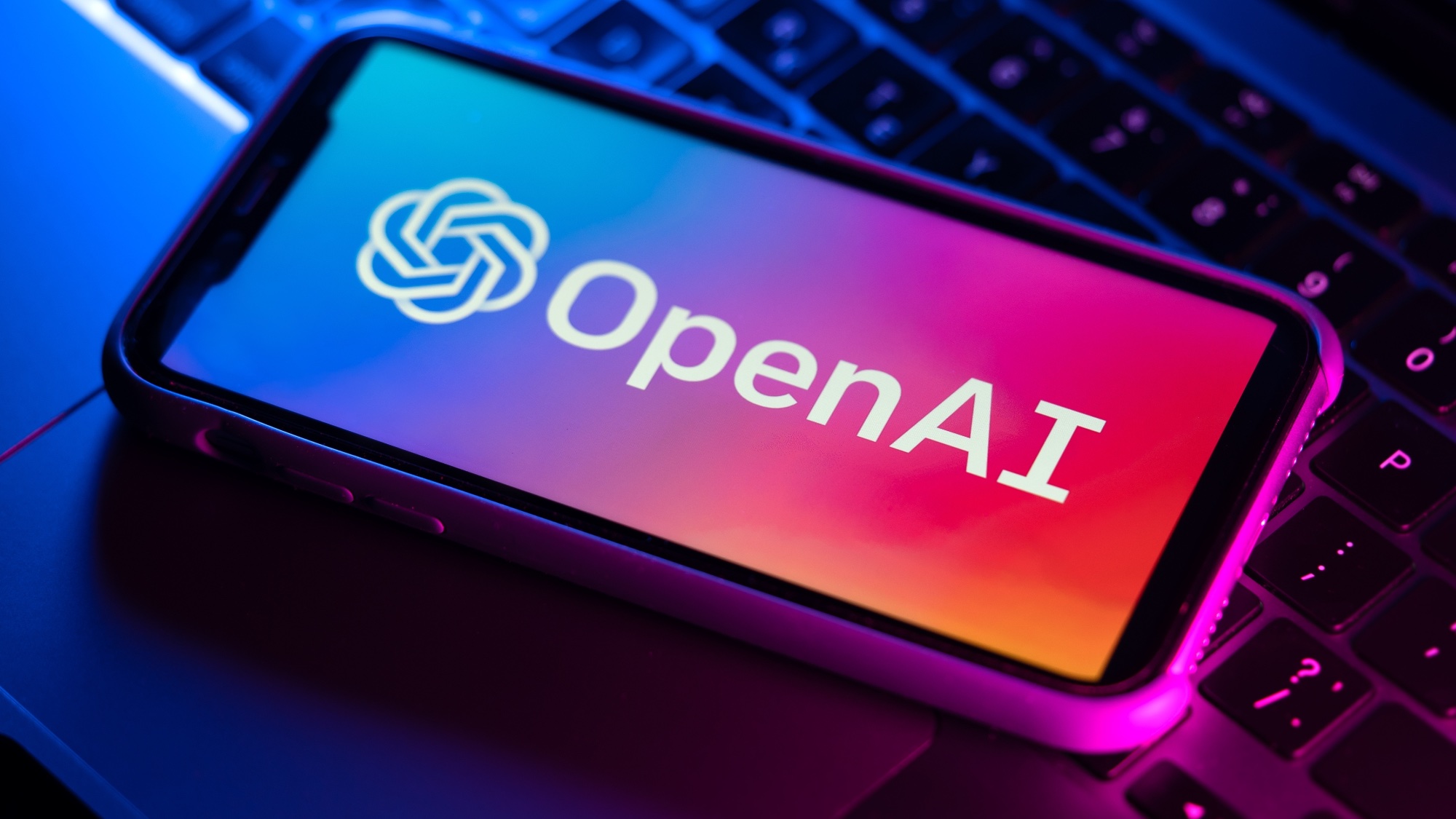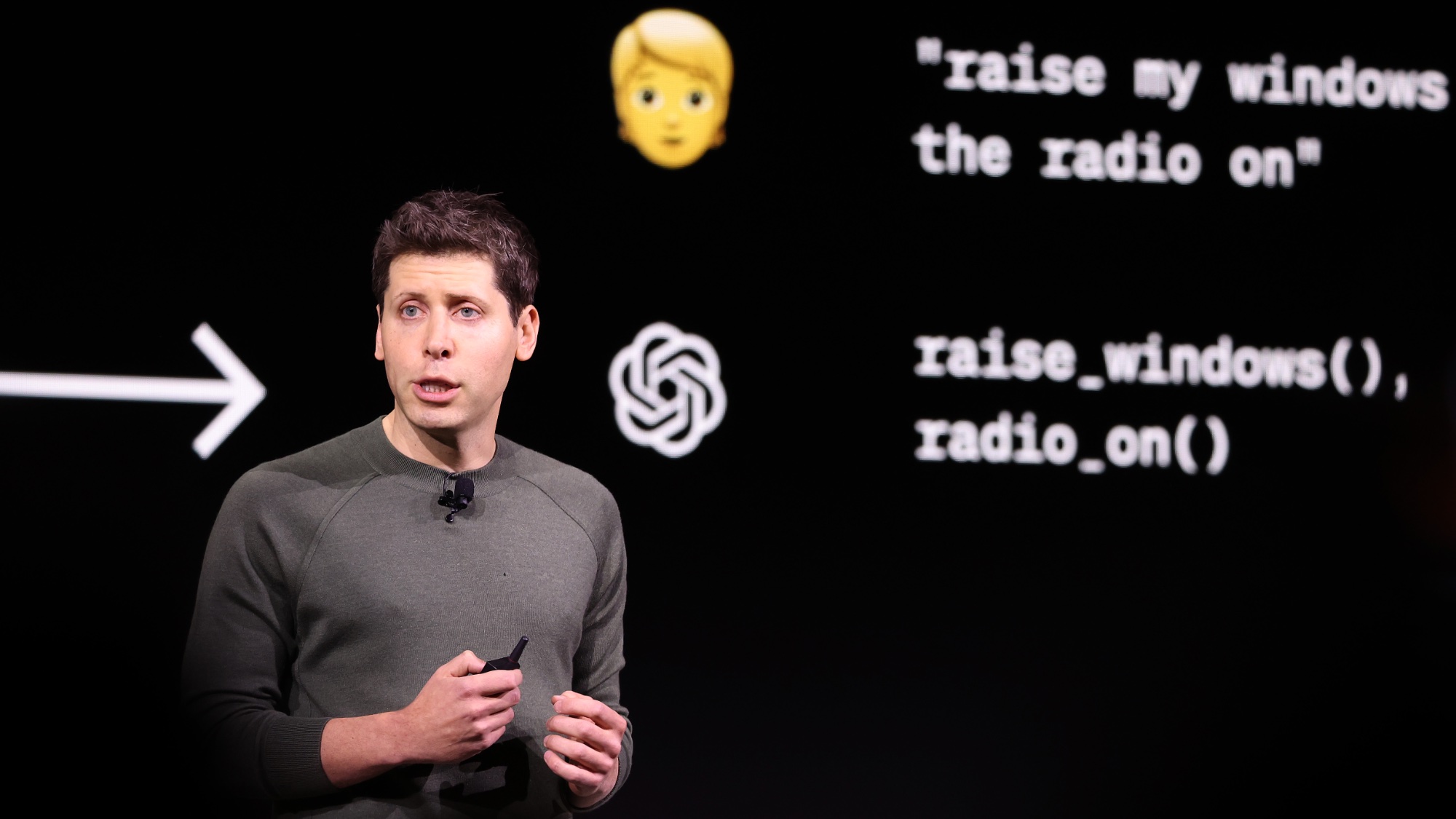OpenAI could play a role in Apple’s iOS 18 update — and that has me worried
The company's developing a reputation for recklessness

When iOS 18 debuts at a WWDC 2024 preview next month, ChatGPT could be along for the ride. According to reports, Apple and OpenAI are in advanced talks to use OpenAI technology in this year's iPhone software update, as Apple makes a push to introduce more prominent AI-powered features into its products.
It's an exciting prospect for people who'd like to tap into the power of generative AI on their iPhone and maybe also get a revamped version of the Siri personal assistant. But it's also should be a concerning development for anyone who's read the news lately and found OpenAI making headlines for the wrong reasons.
Around the same time Bloomberg was reporting on the Apple-OpenAI negotiations, OpenAI was holding its own Spring Update event to show off the new GPT-4o model, highlighted by a new voice assistant capable of real-time conversations. Named Sky, the voice assistant drew comparisons to a similar tool at the heart of the movie "Her" — comparisons OpenAI CEO Sam Altman seemingly emphasized by tweeting out "her" as the voice assistant made its debut.
Another person who spotted the similarity was Scarlett Johansson, the actor who supplied the voice of the virtual assistant in "Her." In a withering statement, Johansson said she had been approached by Altman to provide the voice for Sky and that she had turned down the offer. Given the similarities between that voice and Johansson's, the actress concluded that OpenAI had appropriated her voice without permission.
The reality may be somewhat more muddled, according to reports in both the Washington Post and Wall Street Journal. The voice actress who did supply Sky's voice was apparently hired long before Altman approached Johansson. What's more, Altman's overture to Johansson was apparently to many others at AI, including people working on the Sky project.
I'm not really here to unravel this game of He Said, She Said — or He Said, "Her" Said, more accurately. Either OpenAI got caught trying to pull a fast one or the company bungled its way into an PR own-goal thanks to miscommunication and a lock of openness. Neither explanation is very encouraging, particularly if OpenAI's models are about to find their way on to your phone.
OpenAI worries

And that's why the brouhaha over Scarlett Johansson's voice is not merely a sideshow, at least for anyone who uses an iPhone. Those OpenAI guys who managed to galaxy brain themselves into a public shoving match with an actor who doesn't blink about taking the Walt Disney Company to court? They're potentially going to get to monkey around with your iPhone's functionality at Tim Cook's invitation.
Get instant access to breaking news, the hottest reviews, great deals and helpful tips.
The scope of the Apple-OpenAI partnership — if it even comes to pass — is unknown. As my colleague Ryan Morrison has noted, the eventual agreement could cover anything from OpenAI integrating elements of ChatGPT into iOS 18 to Apple swapping out Siri for a ChatGPT-powered assistant. Whatever ends up happening, though, forgive me if I'm a little nervous about a company with ChatGPT's track record involved in the inner workings of my iPhone's software.
AI-powered capabilities on the iPhone are fairly new, at least in terms of the power and integration we're talking about for some of iOS 18's rumored additions. Any time something new lands on your phone, there's an element of trust at play, as you're counting on the people implementing powerful new features to do so in an secure, ethical way. Apple has earned that benefit of the doubt over the years; the same cannot be said for OpenAI.
The dispute over its voice assistant isn't OpenAI's first brush with controversy. A top researcher just resigned from the company claiming that "safety culture and processes have taken a backseat to shiny products." (That resignation followed OpenAI disbanding a group within the company that considered the long-term risks of AI.) Altman was briefly removed as OpenAI's CEO last year, with the company's board citing concerns about he handled AI safety issues. These are not encouraging headlines.
No device you own is more personal than your phone. You want to be careful about who you let onto there.
No device you own is more personal than your phone. It's got your contacts, your communications and, increasingly, sensitive data like health and banking information. You want to be careful about who you let onto your phone, reserving that privilege for the sorts of companies that understand your phone is an extension of you and not another data point to be collected.
At the risk of coming across like the meme of the guy who's only seen "Boss Baby," I'm getting a lot of Facebook vibes from this. Facebook, the social network that only your parents seem to use now, made similar headlines about a decade ago for egregious privacy violations, sincere apologies for those violations and then making even more privacy violations once the company thought everyone stopped paying attention. Facebook does business as Meta now, mostly because it's shifted its focus to virtual reality but partly because the Faceboook name became synonymous with "looking at your data all the time even when we shouldn't be."
OpenAI hasn't reached that point, at least not yet. But as far as first impressions go, it's not off to a great start as it reportedly closes in on a deal with Apple.
iOS 18 AI outlook
There's a lot to be excited about with iOS 18, and the AI capabilities the software update figures to bring to iPhones. While many of the details remain safely tucked away from the public's eyes, some of the potential features that have trickled out suggest that Apple's adding features that speed up mundane tasks and free us up to be creative and get more things done from our iPhones.
That's encouraging, certainly, even if there are pitfalls to AI features. I'm fairly confident Apple's aware of what those are; I just hope it realizes any potential partners need to be mindful of that, too.
More from Tom's Guide
- I put ChatGPT-4o new vision feature to the test with 7 prompts
- ChatGPT-4o vs Google Gemini Live — how the new AI assistants stack up
- iOS 18 — how Apple can close the gap with Google
Philip Michaels is a Managing Editor at Tom's Guide. He's been covering personal technology since 1999 and was in the building when Steve Jobs showed off the iPhone for the first time. He's been evaluating smartphones since that first iPhone debuted in 2007, and he's been following phone carriers and smartphone plans since 2015. He has strong opinions about Apple, the Oakland Athletics, old movies and proper butchery techniques. Follow him at @PhilipMichaels.
 Club Benefits
Club Benefits






